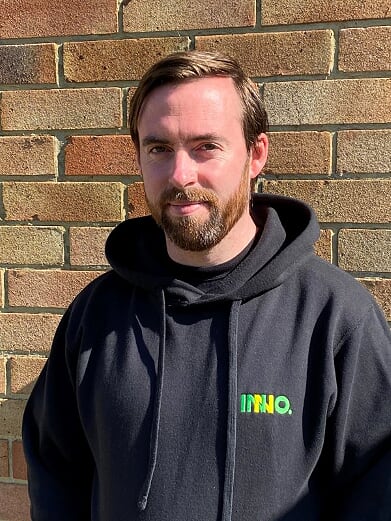Features - Business
Response to latest ONS construction figures

Tobias Barfoot, MD, Inno Construction speaks to UK Construction Online about what the latest ONS Statistics mean for the construction industry.
It wasn’t surprising at all to see the fall we did in April, with the Covid-19 pandemic really taking hold of the country. That was the month we hit the peak of the virus, and lockdown was in full force. We had had to quickly shut down all sites with the hope of returning soon.
It’s fantastic to see the rise of 8% through the month of May, however. And this was despite the fact that most of the sector didn’t really return until the back half of that month. At Inno Construction we shut down along with most other businesses. Whereas prior to the lockdown our phones were ringing and project leads were coming through continuously, as lockdown got nearer this reduced. It wasn’t actually until we were into the lockdown period that people starting calling once more.
It’s clear that despite the positive news coming for the month of May, the construction industry as a whole is going to take a long time to recover. We can’t predict if an increase of 8% is going to be consistent month-on-month, and, even if it is, that’s not going to get us back to where we were. With the industry still 40% lower than pre-lockdown levels, it’s very clear we have a long way to go.
Since the easing of restrictions, we are certainly seeing an increase in business, which is encouraging. To back up what the findings say we are certainly experiencing a lot of unfinished projects that are requiring immediate attention. We have had two projects in the last four weeks that are in a dire state of repair. This is mainly due to having to shut the sites down quickly and now not having the right contractors in place to finish the project, for one reason or another.
We are currently seeing a huge shift in the industry as companies pivot to operating differently to how they have done in the past, and at Inno Construction we are no different. Our changes include offering virtual appointments, creating 3D plans from drawings, completing the tendering process in two stages (one long distance through video calls) and only visiting homes when it’s absolutely necessary, to protect our staff and the consumer as much as practically possible. Ultimately, this is also excellent for companies as this really reduces the amount of time spent on the road. It’s not only a great cost saver but is also good for the environment, reducing a lot of time travelling in cars and vans.
We are seeing that most of our customers are more cautious of signing on the bottom line right now, which is completely understandable. Our customers are uncertain about what the future holds and don’t want to be in a situation where they are left without a habitable dwelling if the worst should happen with a second wave of Covid. I think this will have an effect on the industry growth we see going through in the next the few months. Most of our time is currently being spent finishing our own projects started pre-lockdown, as well as finishing other projects started by firms who, for various reasons, are unable to finish them. Currently all new projects are not due to start until August, which just shows exactly how cautious consumers are being right now.
We had a local survey carried out by Savanta just as restrictions were starting to ease in the country, which shows that 31% of people in the East of England who were originally planning to move are now actually staying put, and 48% of people are using their holiday funds for home improvements. These figures show that the growth in May should hopefully continue into the coming months.
I hope that all the adaptions that the industry has made to battle against the constraints of the pandemic last, and we improve as an industry to provide better, more effective working practices for our staff and for the consumer. I set up the business to look for innovative ways of improving the trade – hence the name, Inno – and I think there’s a lot of scope to do things differently and improve as an industry. This certainly isn’t the last pandemic our world is going to face, and it would benefit the future of our industry if we are working to these practices and adapting further in order to survive the next potential ordeal.
Related Articles
More Features
- Ten years of progress on payment, pre-qualification and skills
19 May 25
The industry has made significant progress on late payment, pre-qualification, and competence since the formation
- Pagabo provides clarity on impacts of new NPPS and PPNs
12 Mar 25
The Labour government’s new National Procurement Policy Statement (NPPS) sets out strategic priorities for public
- How is the Procurement Act going to drive social value
24 Feb 25
The regulations laid out within the Procurement Act 2023 will go live today.






